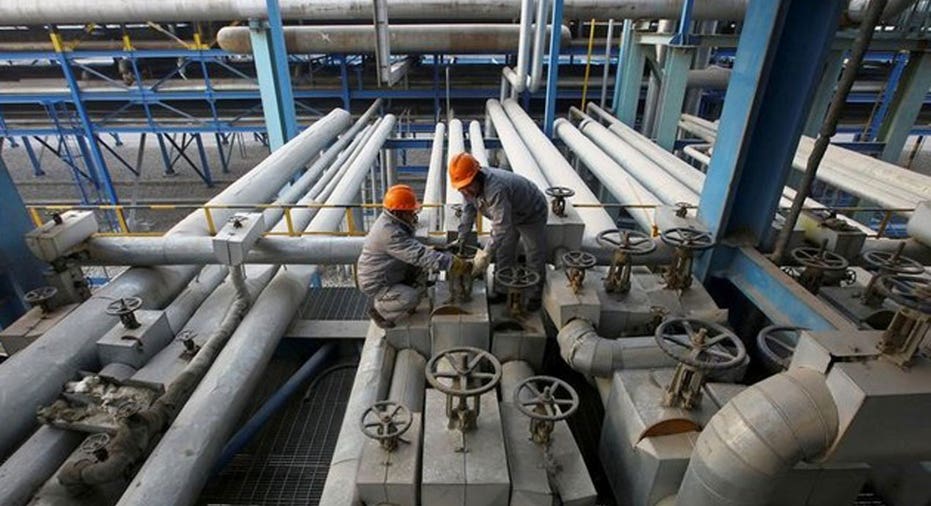Brent slips from 2015 peaks, U.S. crude up on inventory draw

Global oil prices fell on Wednesday while U.S. crude rallied, after crude stockpiles unexpectedly drew with refiners coming back online following Hurricane Harvey last month.
Brent crude futures slipped from 26-month highs, while U.S. West Texas Intermediate crude rose but stayed below five-month highs. Both benchmarks remained on track for monthly gains on stronger demand as refiners along the U.S. Gulf Coast ramped up production after Harvey crippled capacity.
U.S. crude inventories fell by 1.8 million barrels in the week to Sept. 22, the U.S. Energy Department said. Analysts had forecast an increase of 3.4 million barrels.
The crude draw supported oil prices, but gasoline stocks surprisingly rose and stocks of distillates were down by less than anticipated.
"Gains in WTI oil prices will be capped because of recovering oil production in the U.S.," said Abhishek Kumar, senior energy analyst at Interfax Energy’s Global Gas Analytics in London.
Refinery utilization rates rose by 5.4 percentage points, as most facilities have come back online following Harvey.
The effects of that storm, as well as Hurricane Irma, which struck Florida earlier this month, may dampen demand for some time, potentially increasing gasoline inventories while crude stocks are drawn down thanks to renewed refining activity.
Brent November crude futures were down 62 cents at $57.82 a barrel by 11:45 am EST (1545 GMT), while U.S. November crude futures were up 23 cents at $52.11.
Brent futures are commanding their highest premium over U.S. crude in more than two years, partly because of the quick production response by U.S. shale producers to any uptick in price.
U.S. production rose to 9.55 million barrels a day in the most recent week, though those weekly production figures are subject to large revisions. Exports also increased, hitting a weekly record of 1.5 million barrels a day.
"Seeing exports of U.S. produced crude that large would pose a threat to the level that the Brent-WTI premium can go," said Gene McGillian, manager of market research at Tradition Energy in Stamford, Connecticut.
On Monday, Turkey's repeated threat to cut oil exports from the Kurdistan region in northern Iraq pushed the price close to $60 a barrel for the first time since June 2015.
U.S. gasoline stocks rose by 1.1 million barrels, compared with analysts' expectations in a Reuters poll for a 921,000-barrel drop.
Distillate stockpiles, which include diesel and heating oil, fell 814,000 barrels, the EIA said, not 2.2 million barrels as analysts had expected.
The Organization of the Petroleum Exporting Countries and 11 rival producers, including Russia, have committed to output cuts of 1.8 million bpd between January 2017 and March 2018 to help global supply align with demand.
(By David Gaffen; Additional reporting by Amanda Cooper in London and Fergus Jensen in Jakarta; Editing by Dale Hudson and David Gregorio)



















